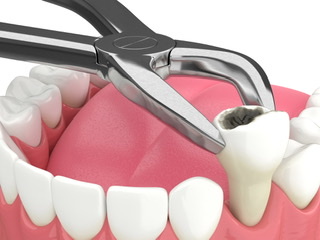Many people get their wisdom teeth in their late teens and even into early adulthoods. Wisdom teeth are your back molars and are the last teeth to grow. This is after you have lost all of your baby teeth. If your dentist has suggested removing your wisdom teeth, they have a compelling reason. Do you know what will happen if you don’t get your wisdom teeth removed ? In the article, we will look at what wisdom teeth is, how to know if you have wisdom teeth and what happens if you don’t get your wisdom teeth removed.
What is Wisdom Teeth?
The Wisdom teeth are the final set of molars that grow in humans usually when they are in their teenage years.
When in good health and alignment, these teeth can occasionally be a great benefit to the mouth; nevertheless, more often than not, they are misaligned and need to be extracted.
Wisdom teeth can be positioned horizontally, inclined inward or outward, or toward or away from the second molars when they are misplaced. Wisdom teeth that are not positioned correctly might crowd out or harm nearby teeth, the jawbone, or nerves.
How Do I Know If I Have Wisdom Teeth?
To know if a wisdom tooth is growing in your mouth, you first want to consult a dentist to check the placement and also conduct an X-ray to confirm the existence and position of the wisdom teeth. For additional assessment, your dentist can choose to refer you to an oral surgeon.

Even before issues arise, your oral surgeon or dentist may advise that your wisdom teeth be removed. This is done to prevent the need for a more difficult or painful removal a few years down the road.
Ideally, it is most suitable to undergo the removal of the wisdom teeth when you are young because the roots have not fully matured and the bone is not as dense. The mending and recuperation process typically takes longer in elderly adults.
What happens if you don’t get your wisdom teeth removed ?
Wisdom teeth are just as subject to decay and other problems as the rest of your teeth. Here are what will happen if you don’t get your wisdom teeth removed.
WISDOM TEETH CAN RESULT IN CAVITIES.
Both men and women are at risk of developing cavities in the teeth that surround the wisdom teeth as well as in the wisdom teeth themselves if they decide against having their wisdom teeth extracted.
The wisdom teeth will eventually force their way into a position, even though there is usually not enough room for them to erupt. Crowding results from this, making it more difficult to adequately clean your molars.
Furthermore, cavities result from tartar buildup, which is not nice for anyone.
IT CAN LEAD TO JAW DAMAGE
The area around the growing teeth may develop cysts. They can cause severe irritation to the nerves and hollow out your jaw if left untreated.

IT MAY RESULT IN ORAL INFECTIONS
You run the risk of developing an oral infection if your wisdom teeth extraction is not handled by an oral surgeon like our doctors. Wisdom teeth are frequently impacted, which prevents them from properly emerging from beneath the gum line.
Rather, they either barely penetrate or sit just below the gum line. In any case, the gum line frequently has little cuts left on it.
These wounds may harbor bacteria and food particles, which could result in an illness. Make an appointment for your wisdom teeth extraction by calling our doctors at their clinics serving Somerset and Hunterdon Counties today to avoid this issue.
IT CAUSES DISCOMFORT
Individuals may experience discomfort if their wisdom teeth are left in place. Furthermore, even though you might think that wisdom teeth would only hurt in your mouth, they can hurt and create discomfort throughout the jaw, neck, and head.
To assist you in resuming a pain-free life, our experts can execute a wisdom tooth extraction procedure!
IT MAY DAMAGE YOUR SMILE
Finally, but just as importantly, patients in the vicinity may experience cosmetic issues if their wisdom teeth are left in place.
As previously discussed, wisdom teeth rarely have adequate space to erupt properly. This implies that they will push and move your other teeth around as they make their way into your mouth. Therefore, you run the danger of damaging your flawlessly straight smile if you choose not to have your wisdom teeth out.
What happens during wisdom tooth extraction?
The day of your procedure, your surgeon will:
- Give you anesthesia to numb your teeth and gums and keep you comfortable. (If you choose sedation, they’ll give you sedative medications, as well.)

- Make incisions (cuts) in your gums, if necessary, to expose teeth trapped in your gums or jawbone.
- Carefully loosen your wisdom tooth and lift it from its socket. (They may need to divide your tooth into sections for easier removal.)
- Clean the area to make sure there’s no infection.
- Place stitches to close the surgical site, if necessary.
- Place gauze over the sockets to slow bleeding.


